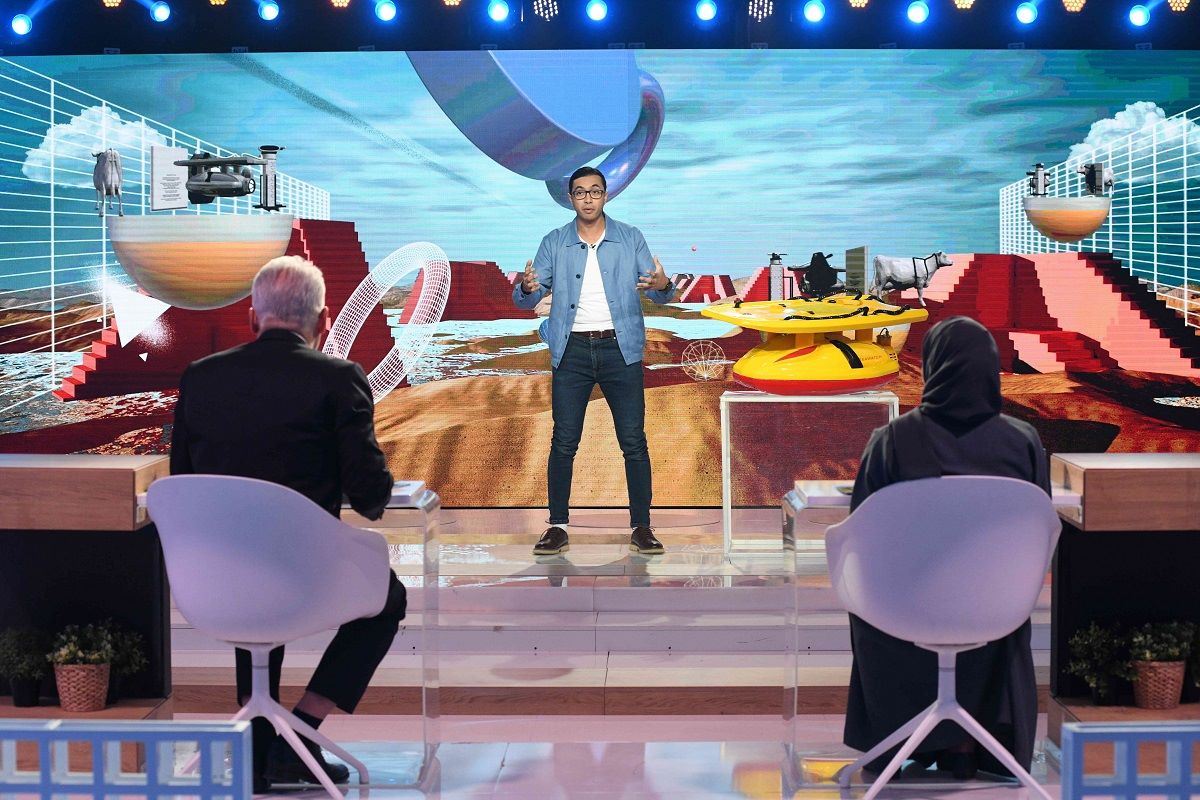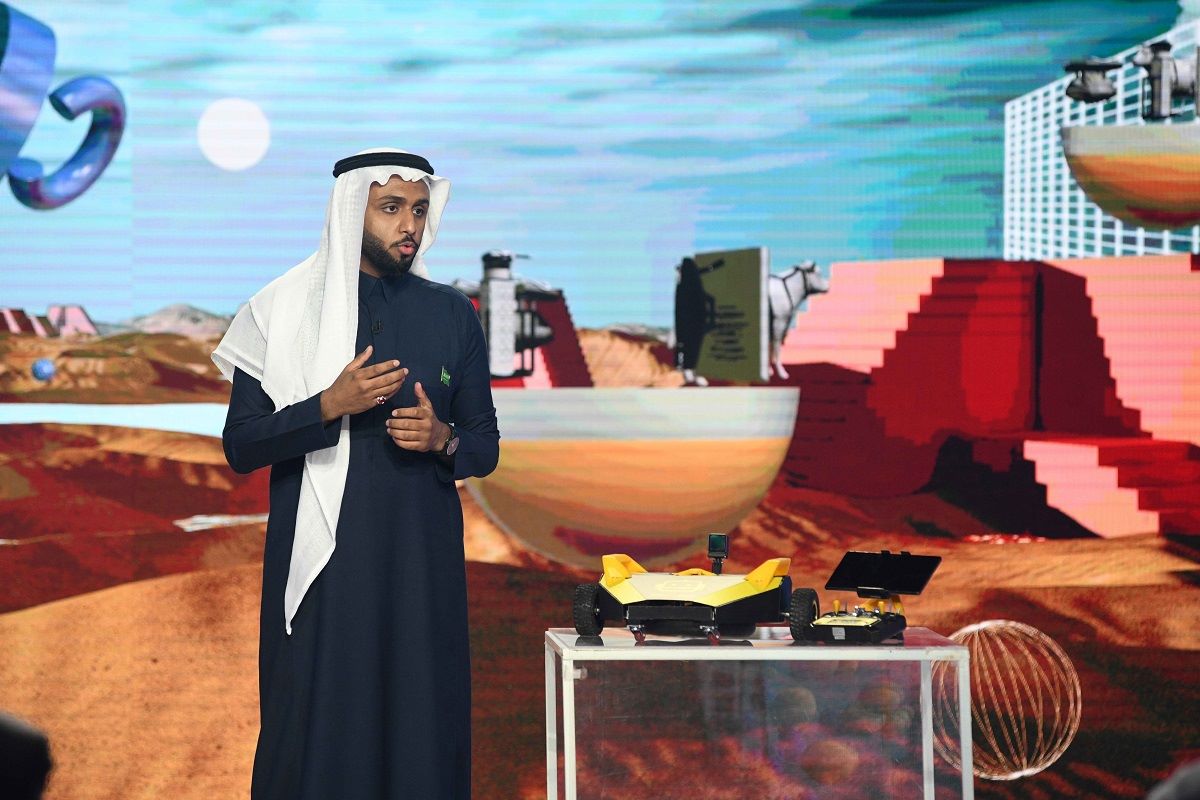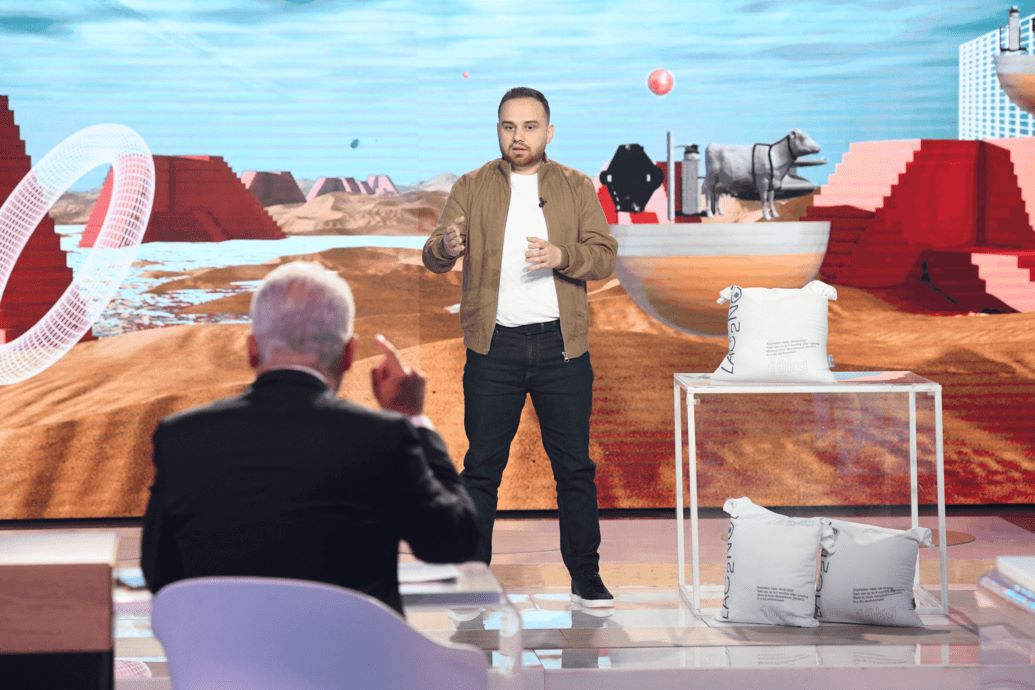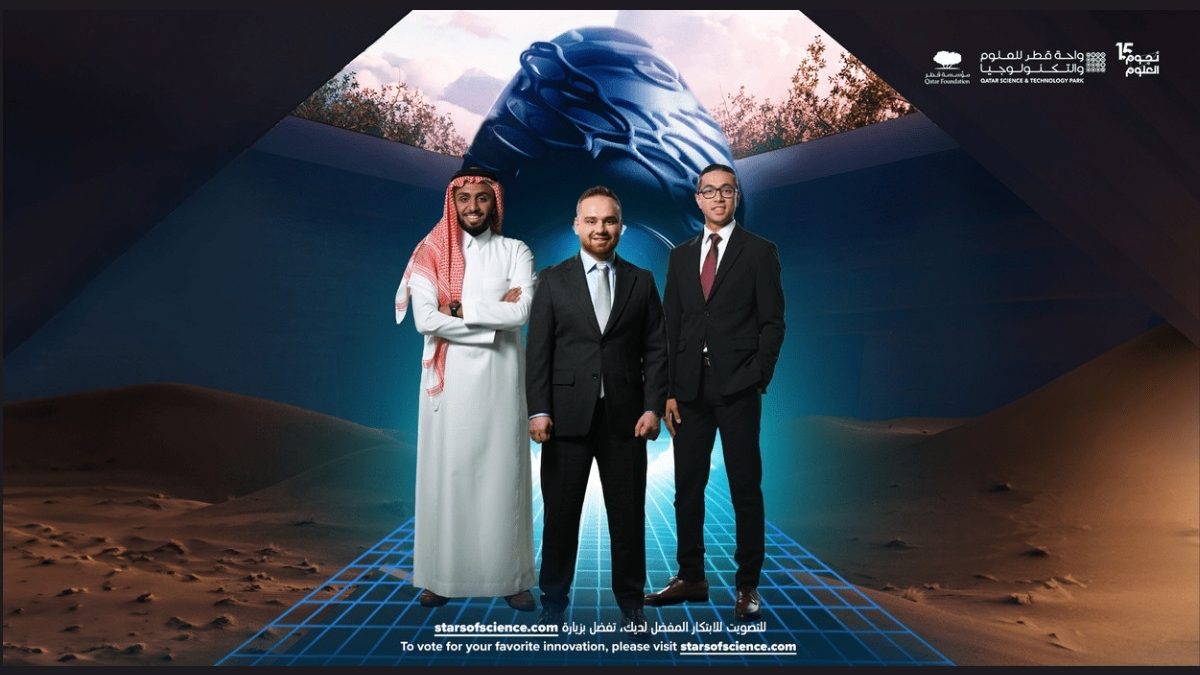As the 12-week journey of Stars of Science continues, the three remaining competitors who have successfully navigated three rounds of elimination will now advance to the final episode, where they will make their case to be this season’s Top Arab innovator.
One winner and one runner-up will be decided through jury deliberation and online voting, with each hoping to win the title and a share of the grand prize.
Season 15 of Stars of Science – the edutainment show created by Qatar Foundation to advance scientific innovation and entrepreneurship in the Arab world – has been unique in terms of showcasing the versatility of smart devices and robots in promoting safety and well-being in our communities.
Invention to expedite seaside rescue
Aiming to bolster security at sea is Aly Magdy Mohamed, an Egyptian mechatronics engineer, whose marine drone will expedite rescue at beaches. His drone integrates Internet of Things (IoT) connectivity, cameras, Global Positioning System (GPS), Global System for Mobile (GSM) communication, Lidar for obstacle avoidance, and health monitoring devices, to provide an assistive option to human-powered rescue methods.

Reflecting on the journey that led to his invention, Mohamed said he is always aware of the dangers at sea, having witnessed unfortunate incidents of multiple drownings while growing up in Egypt. With tourism being the backbone of Egypt’s economy, he said he was driven to find a solution that could make the beaches safer.
My ultimate aim now is to develop the product into a Minimum Viable Product, saving lives and the environment not only in my country but also around the world.
Mitigating safety hazards at construction sites
The youngest finalist, Mohammed Abbas Albumijdad, is a Saudi mechanical engineer who is devoted to mitigating human safety hazards at construction sites. He invented a crawling robot designed to monitor large vertical spaces. The climbing robot can be used for various purposes, including the inspection of dams and skyscrapers as well as bridges for cracks, cleaning and other purposes in hard-to-reach or hazardous areas.

Albumijdad said it is a matter of great pride for him to be representing Saudi Arabia in Stars of Science. He said that his country is home to exceptional talent and his heartfelt wish is for it to also become the undisputed leader of robotic science in the region.
Ethanol-tolerant yeast
Finalist Abdallah Alhaj Sulaiman is a Syrian biomedical engineer pursuing a PhD at Hamad Bin Khalifa University (HBKU). Despite his young age, Sulaiman has a record of eight research publications in well-established scientific journals under his name.
It was during his time working as a consultant in a dairy company that he was able to pioneer a method to produce ethanol-tolerant yeast through the fermentation of lactose in disposable whey, which was otherwise dumped into the sea and threatening marine life.

On reaching the Stars of Science finals, Sulaiman said his invention brings him closer to his ultimate vision of establishing microbiological security in the region, through domestic cultivation in the Arab world.
Producing a viable alternate source of energy through the fermentation of lactose in whey can have a far-reaching impact for the electricity-starved countries in our region.
Online voting is now open to the public until Thursday, 19 October, via the Star of Science website. Their final episode is set to air on Friday, 20 October.
Check out Marhaba’s FREE e-Guides for everything you need to know about Qatar.





